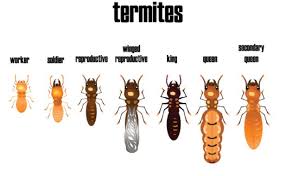Ah, termites—the silent destroyers that live rent-free and can cause a massive headache if left unchecked. Wondering when you should kick these pesky critters out? Honestly, timing is everything. So, when is the best time to do the termite treatment? Let’s dig in.
Key Takeaways
- Spring and early summer are the best times for termite treatment, but any time is better than delaying.
- Winter treatments can be effective to stop colonies from expanding before spring.
- Act immediately if you notice signs of termites—don’t wait for the “perfect” time.
- Preventive treatments in early spring can save you money and hassle in the long run.
Spring and Early Summer: The Ideal Time
First off, there’s no “wrong” time for termite treatment, but there are definitely some “better” times. The consensus is that spring and early summer are prime windows to tackle termite infestations. Why? Simple—that’s when termites are most active, meaning treatments can be especially effective. During these warmer months, colonies are on the move, breeding, building, and…well, destroying. They’re easier to target because they’re not huddled deep in the ground.
Winter Treatment: A Decent Backup Plan
But hey, life isn’t always perfect, and sometimes termites show up when it’s least convenient—like in the middle of winter. Does that mean you’re doomed? Not at all. While termites are less active in colder weather, you can still treat them anytime you notice a problem. Some pros will argue that even winter can be a decent time for treatment because it stops colonies from expanding once spring hits. Plus, the best termite treatment should adapt to your schedule, not the other way around.
Don’t Wait If You Spot the Signs
Should you wait for spring if you notice termites in the fall? Heck no! If you see signs—like mud tubes, droppings, or hollow-sounding wood—don’t put off a treatment just because it’s not the “perfect” time of year. Trust me, those little guys won’t wait around until it’s convenient for you. They’re on a mission, and it’s your job to interrupt that mission—ASAP.
Prevention is Key
Another thing to think about: preventive treatments. You don’t actually have to wait until termites are already invading your space. If you’re in an area known for termite problems, a proactive treatment in early spring can save a ton of hassle later on. A little prevention goes a long way—and can be much easier on the wallet.
Summary: When Should You Treat?
So, here’s the summary: The best termite treatment timing isn’t written in stone, but generally, spring and early summer take the prize. If you have termites now, then the best time? Today. Tomorrow at the latest. Don’t procrastinate on this one, because, believe me, they won’t. You’ll thank yourself later when you’re not shelling out for major structural repairs.
Final Advice: Leave It to the Pros
And a last bit of advice—always go with a reputable pest control company. The DIY stuff can be hit or miss, and termites aren’t exactly something you want to gamble on. Get a pro, sleep better at night.
Got questions about termite treatment or need professional help? Drop a comment or reach out—we’re here to make sure your home stays safe and sound!
Frequently Asked Questions
- When is the best time for termite treatment?
- Spring and early summer are ideal since termites are most active, but treatment can be effective year-round if necessary.
- Can I treat termites in winter?
- Yes, winter treatment can still be effective to prevent the colony from growing before spring.
- What are the signs of termite infestation?
- Look for mud tubes, droppings, hollow-sounding wood, and damaged wood structures.
- Should I wait until spring to treat termites if I see them in fall?
- No, treat them immediately. Waiting can allow the infestation to worsen.
- Is preventive termite treatment worth it?
- Absolutely, especially if you live in a termite-prone area. Preventive treatment in early spring can save a lot of trouble later.
- How often should I get termite treatments?
- Most termite treatments last around 5 to 10 years, but annual inspections are recommended to ensure no new infestations.
- Can I do termite treatment myself?
- DIY treatment is possible, but professional treatments are more reliable and effective, especially for large infestations.
- How long does termite treatment take to work?
- It can take from a few days to several months for a colony to be completely eliminated, depending on the size and type of treatment used.
- Are there any natural ways to treat termites?
- Some natural options include orange oil, neem oil, and diatomaceous earth, but they may not be as effective as professional-grade treatments.
- How much does professional termite treatment cost?
- Costs vary based on the size of the infestation and the treatment type, ranging from a few hundred to several thousand dollars.

